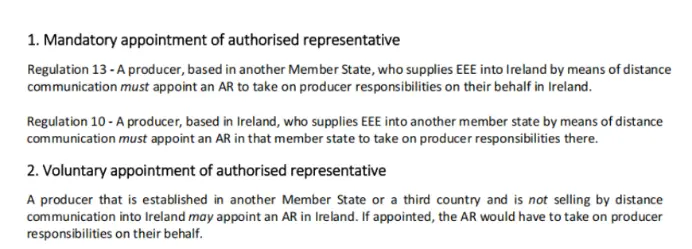
FCC Part 15 Compliance Guide for Electronic Devices
fcc part 15 regULates most electronic products sold in the United States. This guide lists electronic products classified as intentionalor unintentional radiatorsunder fcc Part 15, as well as products exempt from these regulations.
Wi-Fi Supported Devices
All Wi-Fi enabled devices (such as smartphones, computers, tablets) contain radio frequency emitters and must comply with FCC Part 15 requirements.
This regulation also limits electromagnetic interference generated by Wi-Fi devices.
Examples:
1. Smartphones
2. Wireless lighting devices
3. Wireless MICrophones
4. Game consoles
5. Tablets
6. Bluetooth devices
Bluetooth Supported Devices
Bluetooth devices use radio frequency energy (9 kHz to 3000 GHz) and fall under FCC Part 15 regulation, requiring compliance with technical and administrative requirements.
Examples:
1. Bluetooth speakers
2. Bluetooth headsets
3. Bluetooth keyboards/mice
4. Bluetooth watches
5. Laptops
6. Tablets
RFID Products
RFID devices typically include transponders, receivers, and transmitters, so most RFID products are regulated under FCC Part 15.
However, some passive RFID tags(such as UHF and HF tags) do not emit energy and may be exempt from FCC Part 15.
Examples:
1. RFID card holders
2. RFID scanners
3. CREDit card RFID chips
4. Animal-implanted RFID microchips
Wireless Chargers
Wireless chargers use electromagnetic induction for charging and are thus considered radio frequency emitters.
FCC’s KDB 680106provides specific technical requirements.
Examples:
1. Inductive wireless chargers
2. Resonant wireless chargers
3. Radio wave chargers
USB Devices
Many USB devices operate within specific radio frequency ranges and may cause interference to nearby equipment, so they must comply with FCC Part 15.
Examples:
1. USB flash drives
2. Printers with USB ports
3. Wireless routers with USB ports
4. USB power banks
5. USB fans
Digital Watches and Clocks
Most digital watches and clocks are unintentional radiators. If operating above 9 kHz, they must comply with FCC regulations.
Examples:
1. Smartwatches
2. Digital watches
3. Digital clocks
LED Lighting
LED lighting powered by semiconductor materials may be classified as unintentional radiators.
LED lighting with Wi-Fi or Bluetooth functionality is regulated as intentional radiators.
Examples:
1. LED bulbs
2. LED high bay lights
3. LED deck lights
4. LED strips
5. LED lighting with Wi-Fi
6. LED lighting with Bluetooth
Household Appliances
Household appliances operating above 9 kHz and emitting radio frequencies must comply with FCC Part 15.
Traditional appliances without radiators are exempt.
FCC Regulated Examples:
1. Hot air guns
2. Paper shredders
3. Electric blankets
4. Warming pads
5. Hair straighteners
6. Hair dryers
FCC Part 15 Exempt Products
The following products usually do not emit radio frequenciesor operate below the regulated frequencies and are exempt from FCC Part 15:
1. Refrigerators
2. Stoves
3. Washing machines
4. Water heaters
5. Carpet cleaners
6. Dishwashers
7. Air conditioners
8. Heaters
JJR Laboratory in China provides fcc certification services. Compared to SGS and TUV, we can help you save up to 40% on certification costs.
Email:hello@jjrlab.com
Write your message here and send it to us
 Irish Battery Act Requires an Authorised Represent
Irish Battery Act Requires an Authorised Represent
 Swedish Battery Act Requires an Authorised Represe
Swedish Battery Act Requires an Authorised Represe
 Amazon TIC Provider
Amazon TIC Provider
 Amazon Battery and Charger Requirements
Amazon Battery and Charger Requirements
 Amazon Japan METI A Domestic Administrator Service
Amazon Japan METI A Domestic Administrator Service
 What is "Amazon Japan PSE: A Domestic Adminis
What is "Amazon Japan PSE: A Domestic Adminis
 What Does "ASTM F963-17 Certified" Mean?
What Does "ASTM F963-17 Certified" Mean?
 ASTM F963 Board Games Compliance Testing
ASTM F963 Board Games Compliance Testing
Leave us a message
24-hour online customer service at any time to respond, so that you worry!




